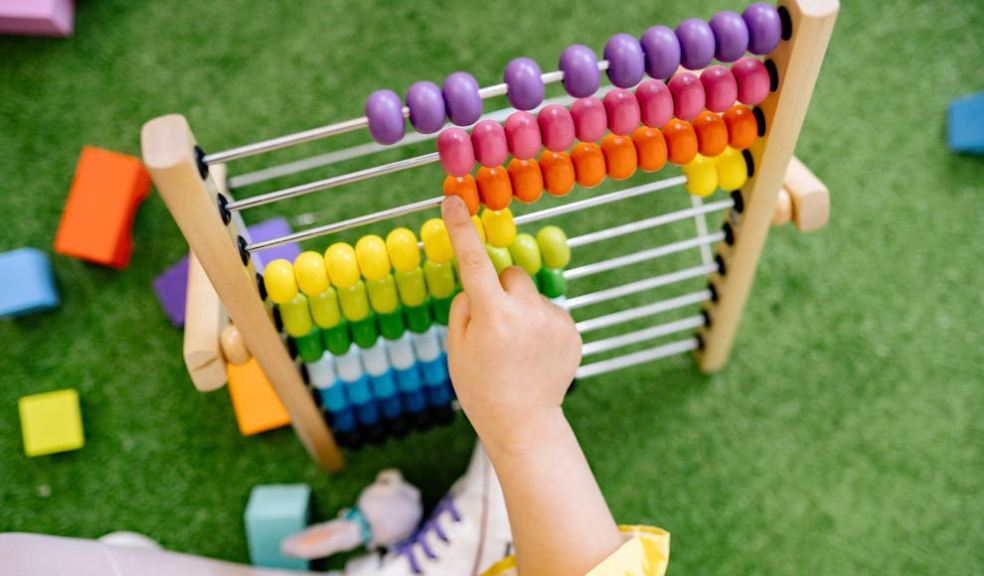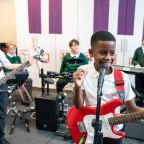
How Early Play Shapes a Child’s Love for Learning
Children are naturally curious. From the moment they start exploring the world around them, play becomes their first and most powerful teacher. Through play, they begin to understand how things work, how people behave, and how their own actions create reactions.
What may seem like simple fun, like stacking blocks, pretending to cook, or singing a song, actually builds the foundation for learning. These playful experiences nurture creativity, confidence, and curiosity, shaping how a child approaches learning throughout life.
Builds a Foundation for Learning
Early play lays the groundwork for preschool readiness, helping children develop the emotional, physical, and cognitive tools they need to succeed in a structured setting. During the early years, a child’s brain is forming vital neural connections at a rapid pace. Every time they experiment with new ideas, whether it’s through solitary play or cooperative play, they strengthen their ability to think critically and problem-solve.
In these formative moments, child development thrives through active exploration. Activities such as stacking building blocks, drawing shapes, or sorting colours may look simple, but they all stimulate brain development. Children learn cause and effect, spatial awareness, and basic maths concepts without even realising it. This hands-on experience builds confidence, which later supports formal learning in literacy and numeracy.
Moreover, a supportive learning environment encourages independence and curiosity. When play areas are designed with thoughtful materials, children are invited to experiment and learn through trial and discovery. These small yet meaningful experiences make learning feel joyful, not forced, paving the way for a lifelong love of discovery.
Strengthens Language and Communication Skills
Play is where language development takes root. As children play with peers, they begin to communicate their needs, negotiate roles, and share stories. Through symbolic play such as pretending a stick is a magic wand or a cardboard box is a rocket, they expand their vocabulary and learn how words represent ideas.
Even simple games, such as musical play or singing nursery rhymes, enhance rhythm, memory, and verbal fluency. These playful interactions provide the scaffolding for reading and writing later on. When adults join in by asking questions, responding to their stories, or repeating their phrases, children experience serve and return interactions that strengthen both speech and emotional connection.
Allowing play to flow naturally gives children the freedom to express themselves and make sense of language in their own way.
Develops Physical and Motor Skills
Children learn best when they move. Activities that involve running, climbing, or balancing help develop physical strength, coordination, and control. These movements also strengthen the brain’s motor pathways, supporting concentration and focus.
Different stages of play, from unoccupied play in infancy to parallel play and associative play in preschool, help children gradually master their bodies and surroundings. As they move from one stage to another, they learn to share, cooperate, and take turns, all of which contribute to their social development.
Meanwhile, play environments that allow freedom of movement, such as outdoor spaces or obstacle courses, encourage locomotor play and rough-and-tumble play. Climbing trees or balancing on beams also teaches risk assessment and body awareness, skills that extend far beyond the playground.
Encourages Emotional Growth and Social Skills
Play is also a form of emotional learning in action. When children engage in cooperative play or sociodramatic play, they experience the joys and challenges of working together. They learn empathy by recognising others’ feelings and develop patience through turn-taking.
During onlooker play, children observe before joining in, gaining a better understanding of group behaviour. Later, in associative play, they start to share ideas and collaborate without rigid rules. These interactions are crucial for building social skills and emotional regulation.
Spark Creativity and Problem-Solving
Creativity blossoms when children are given the freedom to experiment. Activities such as heuristic play invite imagination and critical thinking. These forms of play teach problem-solving skills organically. When a tower of blocks falls, a child learns to rebuild it differently; when paint mixes into an unexpected colour, curiosity replaces frustration.
This trial-and-error process builds perseverance, adaptability, and innovative thinking. Such traits carry over into later learning experiences, helping children approach challenges with confidence rather than fear. Play also encourages spontaneous connections between ideas, an early form of abstract thinking that supports reading comprehension, mathematics, and scientific reasoning.
Cultivate a Positive Learning Mindset
The habits formed during play often influence how children perceive learning later in life. A child who’s encouraged to ask questions, make mistakes, and try again develops a growth mindset. Play gives them the chance to experience mastery at their own pace, making learning feel rewarding rather than intimidating.
In early childhood education, playful routines are often used to introduce structured learning in a gentle, engaging way. Through music elements, storytelling, and simple activity sheets, children become familiar with routines and focus, while still enjoying the process. These moments of joy create positive associations with learning and studying that last well into adulthood.
Key Takeaway
Early play shapes a mindset. Through movement, language, creativity, and connection, children develop the confidence to learn with enthusiasm. When you value play as part of education, you’re not just preparing children for school; you’re preparing them for life. So, nurture their curiosity and independence early on, and soon, you'll create learners who grow up seeing the world not as a challenge to endure but as a place to explore.













